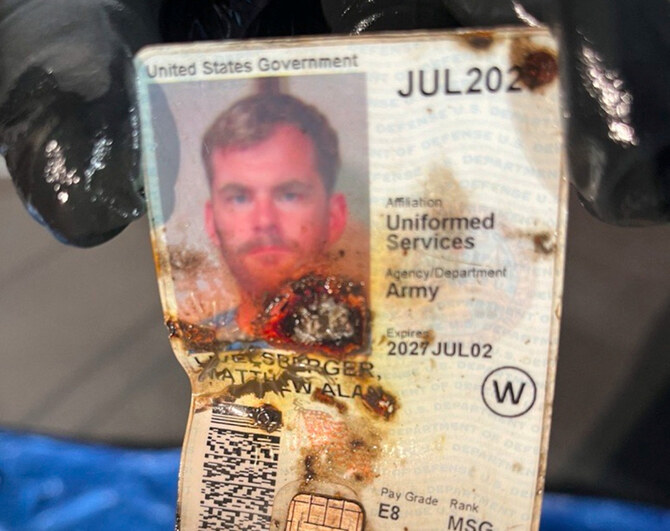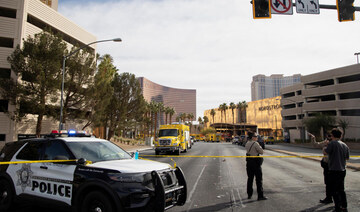RIYADH: Muslims across the Middle East and beyond began marking the Islamic holiday of Eid Al-Fitr, one of the most celebrated holidays for the world’s 1.5 billion Muslims and traditionally a time for family and festivities.
The holiday marks the end of the holy month of Ramadan, when devout Muslims have been fasting from sunrise to sunset.
But the start of the holiday varies from country to country — with splits even within the same country — because the start of Eid is traditionally based on sightings of the new moon.
As with everything else in the Middle East, politics often plays a part.
Ordinarily a festive occasion, this year’s Eid comes amid war and turmoil in more than one area. In Afghanistan, the Taliban insurgent group has said it will not mark Eid with a cease fire, as they did last year. Yemen has been mired in war and famine for years, while in Sudan, the ruling military just conducted a deadly crackdown on Monday against pro-democracy protesters, killing at least 35.
Sudanese protesters have camped for months outside the military’s headquarters as the two sides negotiated over who would run the country after longtime strongman Omar Al-Bashir’s ouster in April. On Monday, the military had had enough and moved to crush the protest movement, overrunning the main sit-in site in the capital, unleashing furious volleys of gunfire, beating protesters with sticks and burning down tents.
At night, the state-run SUNA news agency announced that the country will celebrate the first day of Eid on Wednesday, but the Sudanese Professionals’ Association, which has spearheaded the protests, declared Tuesday is the first day of Eid according to astronomers in the Khartoum University — apparently in defiance to the military council.
The SPA urged people across the country to hold Eid prayers, “pray for the martyrs” and take to the streets to protest.
Mohammed Yousef Al-Mustafa, a spokesman for the SPA, said the military authorities has announced Tuesday as a fasting day in efforts to keep people in their homes after Monday’s “massacre.”
In Yemen, the internationally recognized government said Tuesday is the first day of Eid, while the Iran-backed Houthi militia who control much of the country including the capital, Sanaa, announced that Eid starts on Wednesday.
It is the first time in Yemen’s modern history that its people were split over celebrating Eid.
Saudi Arabia, as well as Kuwait, the United Arab Emirates and Qatar started celebrating on Tuesday, whereas Egypt, Syria, Jordan, the Palestinian territories and others said the Shawwal crescent moon was not visible across the country and would not start till Wednesday.
In Lebanon and Iraq, Sunnis began celebrating on Tuesday whereas Shiites will celebrate on Wednesday.
Pakistan, which is mostly Sunni, traditionally celebrates a day after most of the Muslim world. Pakistan is also split within the country along geographical lines, with residents of Khyber Pukhtunkhwa province, located on the border with Afghanistan and dominated by ethnic Pashtuns, celebrating Eid on Tuesday. The new moon was apparently spotted in North Waziristan, while the rest of Pakistan will celebrate on Wednesday.
In Afghanistan, Shiites were told by clerics that the moon was not seen so Ramadan would not begin for them until Wednesday. Sunnis however are celebrating Tuesday. The Taliban have said there will be no end to fighting while US and NATO troops are still in Afghanistan.
Elsewhere, thousands of Muslims living in Moscow gathered in and outside the city’s grand mosque to pray. Security was high and mounted police patrolled the streets.
The Moscow Cathedral Mosque, which has capacity for 10,000 people, was packed with worshippers, many of whom hail originally from Central Asia.
After Orthodox Christianity, Islam is the second biggest religion in Russia.
“We came to pray and the place is not important. The only place we need is a place to put a rug, to pray to God, to take part in this holiday — this is the most important,” said Sivush Veriyev.
Thousands of faithful packed stadiums in Addis Ababa and Mogadishu and there were also mass prayers in the Nigerian capital Abuja as well as Juba in South Sudan.
In Bangladesh, thousands of people have been scrambling to Dhaka’s ferry terminals and stations, packing trains heading out of the city to return to their hometowns for Eid.
In Turkey, President Tayyip Erdogan prayed at Istanbul’s huge new Camlica mosque, which he formally inaugurated last month.
The holiday traditionally lasts one to three days and is eagerly anticipated after the month of fasting. During Ramadan, the faithful refrain from eating, drinking, smoking or sexual activity from dawn to dusk.
Most businesses close during Eid, as people dress up and visited relatives, enjoying their first daytime meals in a lunar month. The day begins with early morning prayers and then family visits and feasts. Families also visit the graves of their lost ones and children are often given gifts or a special allowance.
*With AP and Reuters


















































